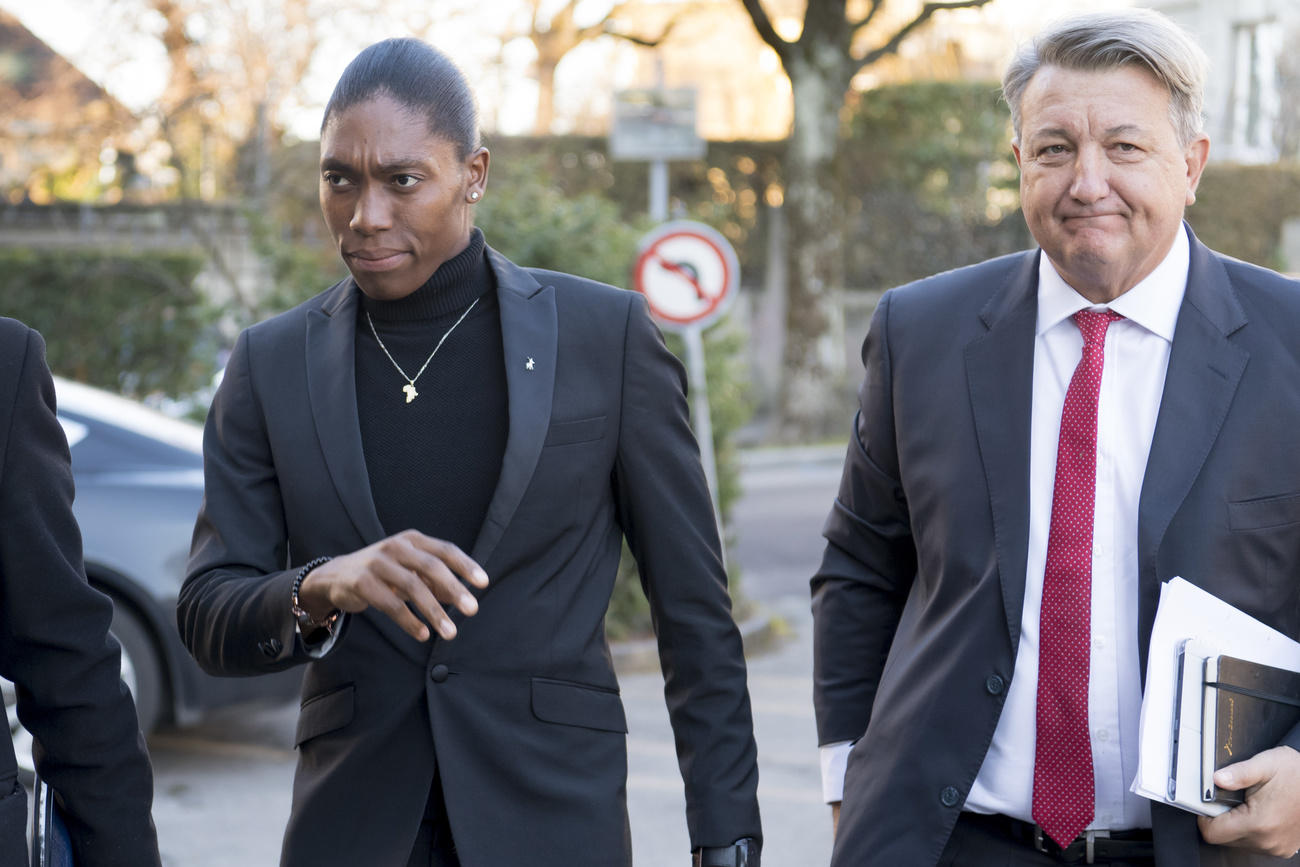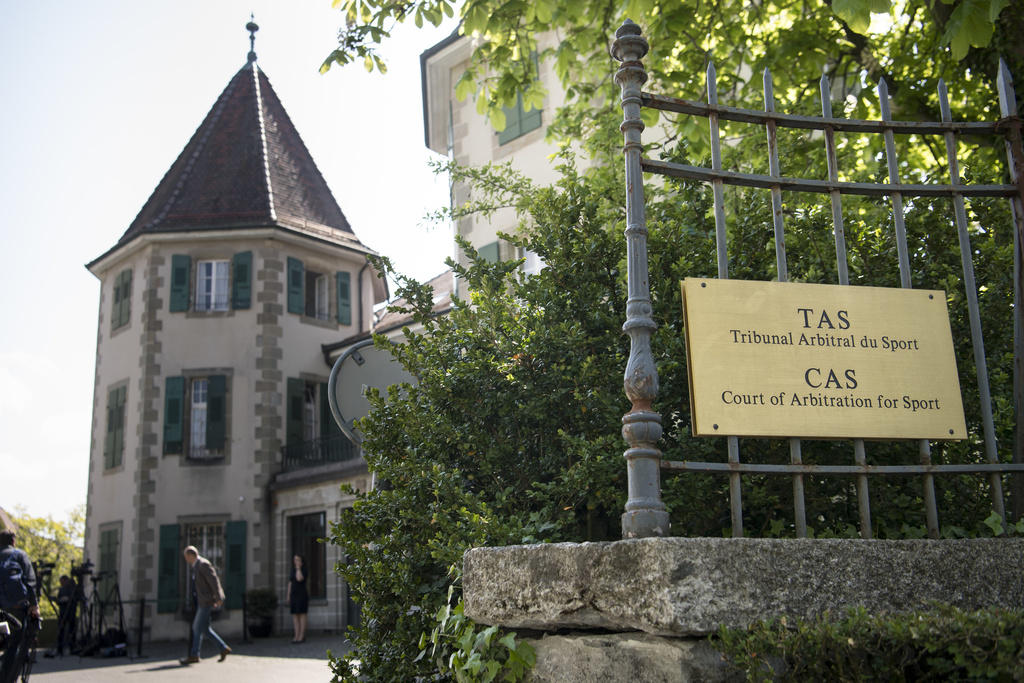Why Swiss judges ruled on the Caster Semenya case

Thanks to Swiss judges, Olympic and World champion Caster Semenya can compete in races of all distances without medication to lower her testosterone levels – for now.
swissinfo.ch explains why Switzerland’s Federal Supreme Court External linkhas a say in this landmark case at the crossroads of science and gender politics.
Why are Swiss judges involved?
The Court of Arbitration for SportExternal link (CAS) is an international court of arbitration based in the western Swiss city of Lausanne. It therefore falls under Swiss law, so its decisions can be appealed to Switzerland’s Supreme Court.
What is the current status of the case?
Switzerland’s highest court granted Semenya a temporary suspension of International Association of Athletics FederationExternal link (IAAF) rules on testosterone limits. This means she can now compete over distances of 400 to 1,500 metres without medication, until Switzerland’s Federal Court issues a ruling on the substance of her appeal. It is not known when this decision will be handed down.
What would be the likely consequences?
If the Federal Court rejects Semenya’s appeal, she could appeal to the European Court of Human Rights in Strasbourg against the Swiss ruling, arguing a human rights violation.
What is the effect of a Supreme Court ruling on international sport?
The Supreme Court’s decisions on appeals against CAS ruling are by nature purely cassatory, i.e. they can only lead to the cancellation of the decision that is being appealed.
“If, as I believe, the motive for cancellation is violation of public order*, the Supreme Court will indirectly be pronouncing also on the substance of the case,” says Antonio Rigozzi, a law professor at the University of Neuchâtel. This would be the case, for example, if the court found a flagrant violation of human rights.
“The judgment in the Caster Semenya case will set a precedent for international sport,” says Philipp Bandi of Swiss Athletics. “Depending on the outcome of the judgment, associations or athletes with similar cases will or will not react accordingly.”
* Article 17 of the federal law on private international law stipulates that “the application of provisions of foreign law shall be precluded if it would produce a result which is incompatible with Swiss public policy”.
Have there been similar cases?
Since the Supreme Court is the CAS appeals court, numerous high-level foreign sporting personalities have had recourse to it. Here are some examples:
- German speed skater Claudia Pechstein has a congenital anomaly and therefore has unusual blood values. When she was suspended for alleged doping, she unsuccessfully appealed against the CAS ruling in 2009, first to the Supreme Court and then the ECHRExternal link.
- Romanian footballer Adrian Mutu was sued for damages by Chelsea for a positive anti-doping test in 2004. His appeals were rejected by the CAS, the Swiss Federal Court and finally the ECHR.
The Swiss Supreme Court
The Federal Supreme Court of SwitzerlandExternal link, based in Lausanne, is the highest judicial authority in civil, criminal, administrative and constitutional matters. It has existed in its current form since 1874.
The Supreme Court almost never rules in first instance, but only after other courts have ruled on the case. So it does not rule on new cases, but only on legal issues. A case can only be corrected by the Supreme Court if it has been found to be manifestly flawed by a lower court.
The court is composed of 38 federal judges and part-time federal judges and clerks. Federal judges are elected by Parliament for a six-year term.
Translated from French by Julia Crawford.

In compliance with the JTI standards
More: SWI swissinfo.ch certified by the Journalism Trust Initiative












You can find an overview of ongoing debates with our journalists here . Please join us!
If you want to start a conversation about a topic raised in this article or want to report factual errors, email us at english@swissinfo.ch.